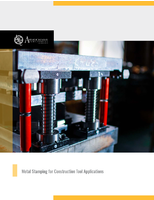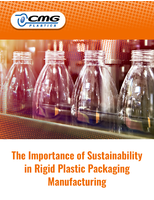WTO Geneva Meeting shows divides still too broad.
Press Release Summary:
In response to end of World Trade Organization discussions in Geneva, NAM President John Engler released statement saying that WTO members declined to agree on terms that could have provided greater opportunities for trade of manufactured goods. China and India reiterated how they could not lower their barriers, but insisted U.S. must lower theirs. However, other developing countries, especially Brazil, made it plain that they were prepared to enter into give and take negotiations.
Original Press Release:
WTO Geneva Meeting Shows Divides Still Too Broad
"Cooling Off Period Needed to Reassess Where to Go with the Doha Round," says Engler
WASHINGTON, D.C., July 29, 2008 - National Association of Manufacturers (NAM) President John Engler today released the following statement in response to the end of World Trade Organization (WTO) discussions in Geneva:
I regret to say that, despite incredible efforts on the part of U.S. Trade Representative Susan Schwab, Assistant to the President Dan Price and the entire U.S. negotiating team, WTO members declined to agree on terms that could have provided greater opportunities for trade of manufactured goods.
Time and again at the Geneva meetings, China and India reiterated how they could not lower their barriers, but insisted we must lower ours. Revealing the sort of negotiation he had in mind, Indian Trade Minister Nath, for example, remarked that cars will no longer be made in Detroit and Dusseldorf but in Asia, a process he seeks to foster by maintaining India's impenetrable barriers against U.S. cars while having virtually open access to our car markets.
The "Special Safeguard Mechanism" demanded by China and India for their agricultural sectors was the final straw. That mechanism would have violated one of the most basic tenets of the world trading system: nations do not violate their tariff bindings by raising tariffs above the legally-bound levels. Once an exception is made, no matter how small, the entire world trading system could begin to unravel. The Doha Round was supposed to move world trade forward, not backwards.
It is regrettable that China and India in the end refused to stick with the rules and wishes of the majority of countries. However, we must face the reality of what they did. It is important to note, however, that other developing countries, especially Brazil, made it plain during the Geneva talks that they were prepared to enter into give and take negotiations, and that is a positive development.
The NAM was prepared to back industrial trade barrier negotiations, so long as they contained provisions that could have resulted in a balanced outcome. But the Geneva talks never reached the point of settling on the rules for industrial trade discussions.
We must prepare ourselves for the onslaught of those pronouncing this to be the end of the WTO. That is nonsense. The WTO is the arbiter of the rules-based trading system and will continue to be the venue for future broad or specific negotiations. We cannot allow the fact that some nations were not ready to engage in truly reciprocal negotiations to be an excuse aimed at the whole system.
What we must do now is to determine where to go from here. From the NAM's perspective, we want to move forward with trade liberalization; but it is clear that the Doha Round needs a cooling-off period in which industries and governments can determine how serious they are about various components of the negotiations. Perhaps the round can then be re-started in more or less its present form, or perhaps a new set of guidelines will be needed. Nevertheless, in some fashion, trade liberalization talks will continue to be needed.
The NAM was represented in Geneva by our Vice President for International Economic Affairs, Frank Vargo. The NAM's views were taken fully into account. We could not have higher praise for the way in which the U.S. government worked with us.
We are also enormously proud of the way Ambassador Schwab and the whole team conducted this negotiation. Their skill and dedication at the negotiating table is second to none. But even their efforts could not succeed when others see the negotiation only as a donor's conference and keep asking what more we are going to give them. We commend the U.S. negotiators for their courage in standing up for trade liberalization that would have benefited the United States and the world's poorest countries as well.
We will continue to work with USTR, Commerce, and State as well as with the Congress to determine the best course for the United States in the months and years ahead.
The National Association of Manufacturers is the nation's largest industrial trade association, representing small and large manufacturers in every industrial sector and in all 50 states. Headquartered in Washington, D.C., the NAM has 11 additional offices across the country. Visit the NAM's award-winning web site at www.nam.org for more information about manufacturing and the economy.




